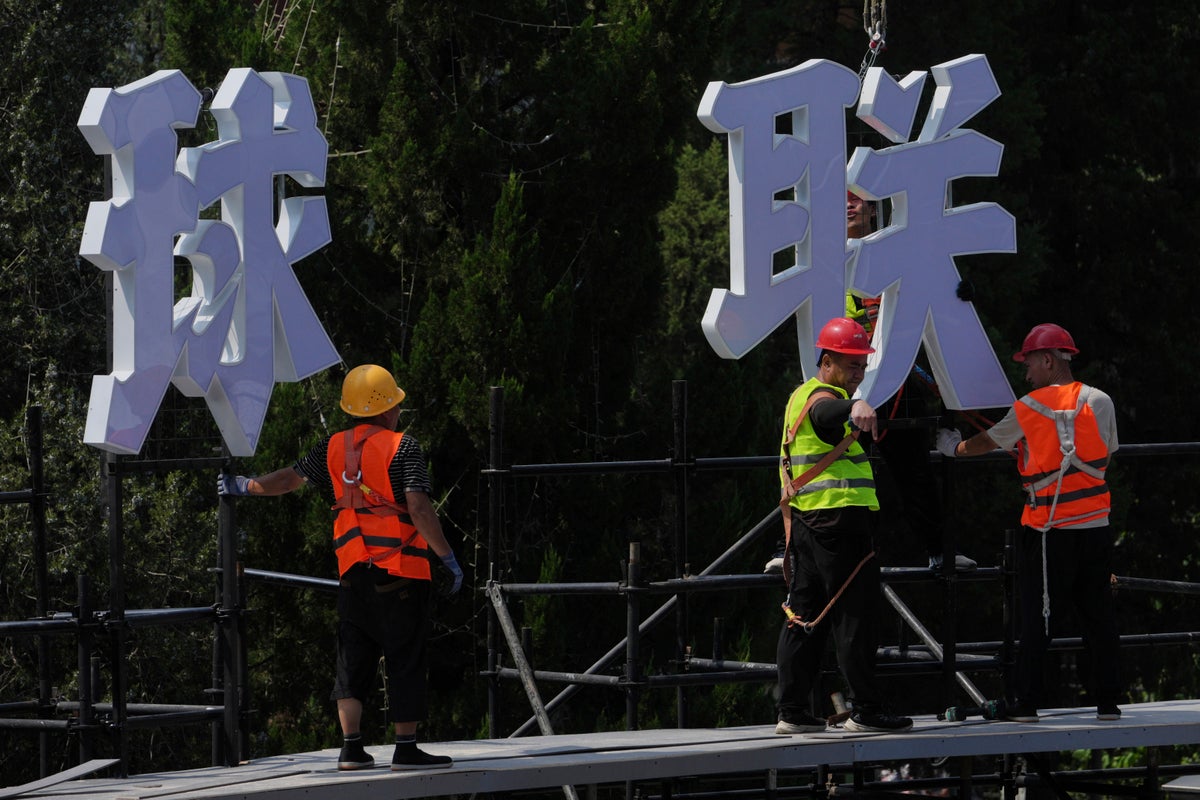From reproductive rights to climate change to Big Tech, The Independent is on the ground when the story is developing. Whether it’s investigating the financials of Elon Musk’s pro-Trump PAC or producing our latest documentary, ‘The A Word’, which shines a light on the American women fighting for reproductive rights, we know how important it is to parse out the facts from the messaging.
At such a critical moment in US history, we need reporters on the ground. Your donation allows us to keep sending journalists to speak to both sides of the story.
The Independent is trusted by Americans across the entire political spectrum. And unlike many other quality news outlets, we choose not to lock Americans out of our reporting and analysis with paywalls. We believe quality journalism should be available to everyone, paid for by those who can afford it.
Your support makes all the difference.
Read more
China‘s economy showed signs of slowing in July as factory output and retail sales slowed and housing prices dropped further, according to data released Friday.
Uncertainty over tariffs on exports to the United States is still looming over the world’s second-largest economy after President Donald Trump extended a pause in sharp hikes in import duties for 90 days, beginning Monday, following a 90-day pause that began in May.
As officials worked toward a broader trade agreement, China reported earlier that its exports surged 7.2% in July year-on-year, while its imports grew at the fastest pace in a year, as businesses rushed to take advantage of the truce in Trump’s trade war with Beijing.
But that also reflected a lower base for comparison, and manufacturers have slowed investments, hiring and production as they watch to see what comes. Chinese manufacturers also have ramped up shipments to Southeast Asia, Africa and other regions to help offset lost business in the U.S.
Still, annual growth in industrial output fell to 5.7% in July from 6.8% in June, the National Bureau of Statistics said.
Investments in factory equipment and other fixed assets rose a meager 1.6% in January-July, compared with 2.8% growth in the first half of the year.
Property investments plunged 12% in the first seven months of the year, with residential housing investment dropping nearly 11%.
Prices for newly built housing in major cities fell 1.1%, as a prolonged downturn in the property industry lingered.
The meltdown in the housing market hit just as the COVID -19 pandemic began, sapping one of the economy’s main drivers of growth and causing dozens of developers to default on their debts.
The crisis rippled throughout the economy, destroying jobs for millions of people.
The government has sought to ensure that most housing that was paid for gets built, but sales remain weak despite a series of moves meant to entice families into back into the market.
Since most Chinese families have their wealth tied up in property, the anemic housing market has been a major factor crimping consumer spending. In July, retail sales rose 3.7%, the slowest rate in seven months and down from a 4.8% increase in June.
The unemployment rate rose to 5.2% from 5% as university graduates began looking for work.
While consumer prices rose 0.4% in July from the month before, prices at the wholesale level slipped 3.6% from a year earlier in another indicator of relatively weak demand.
